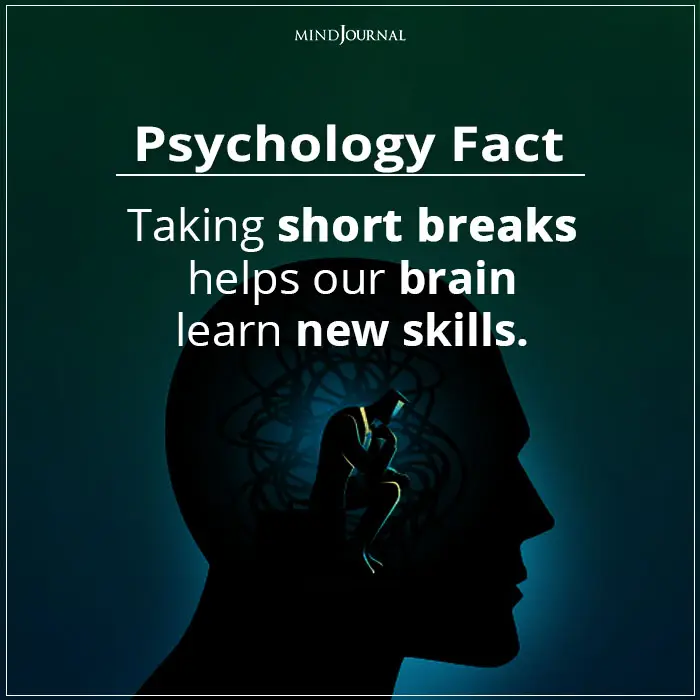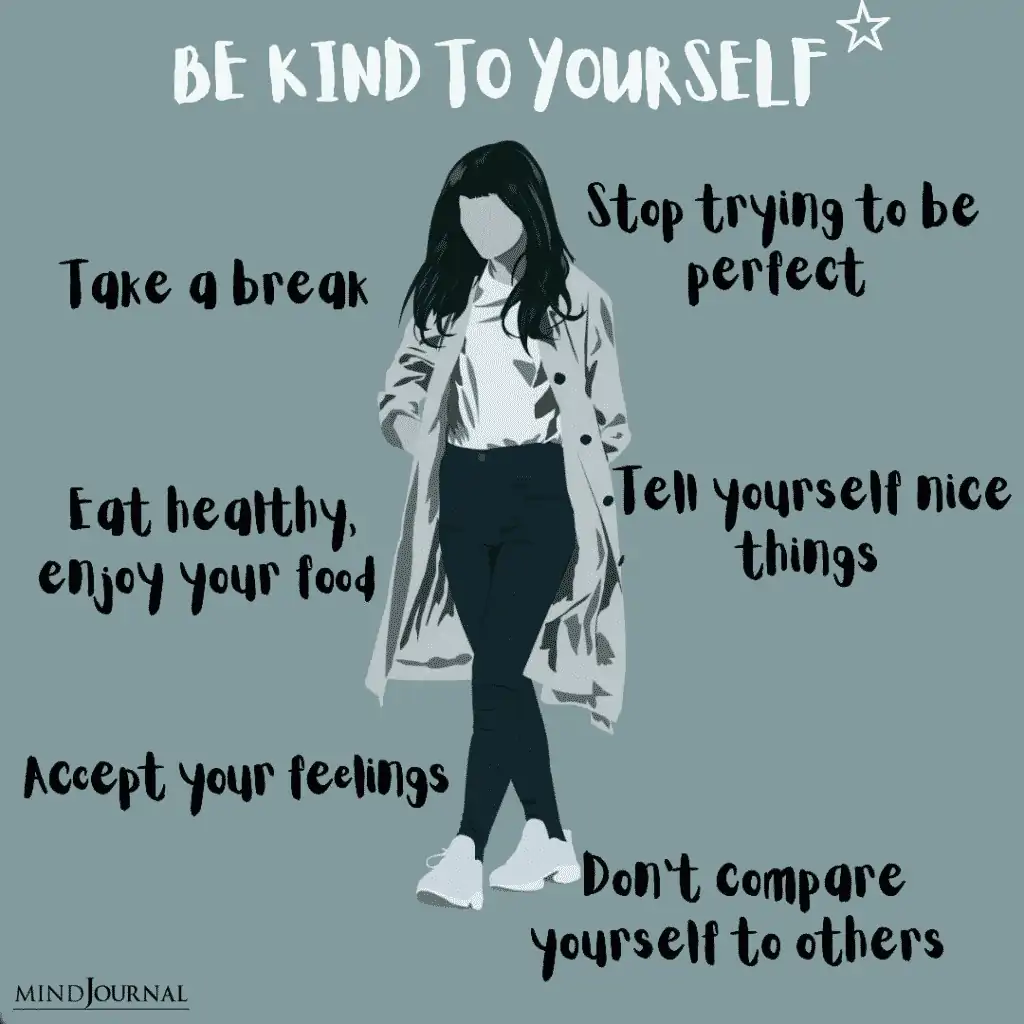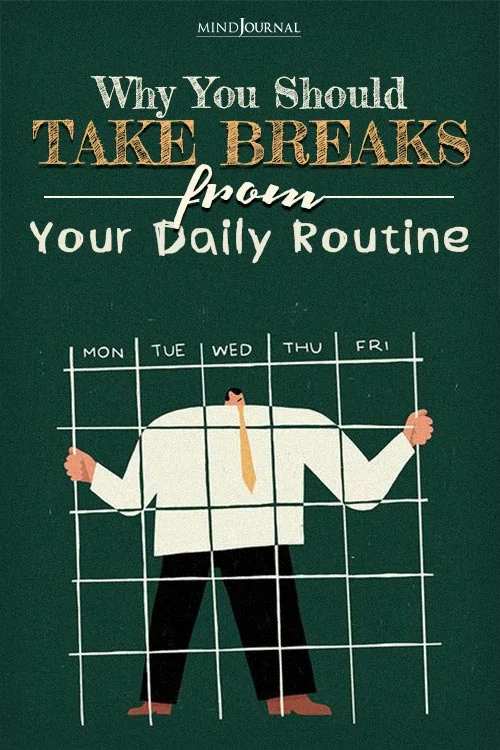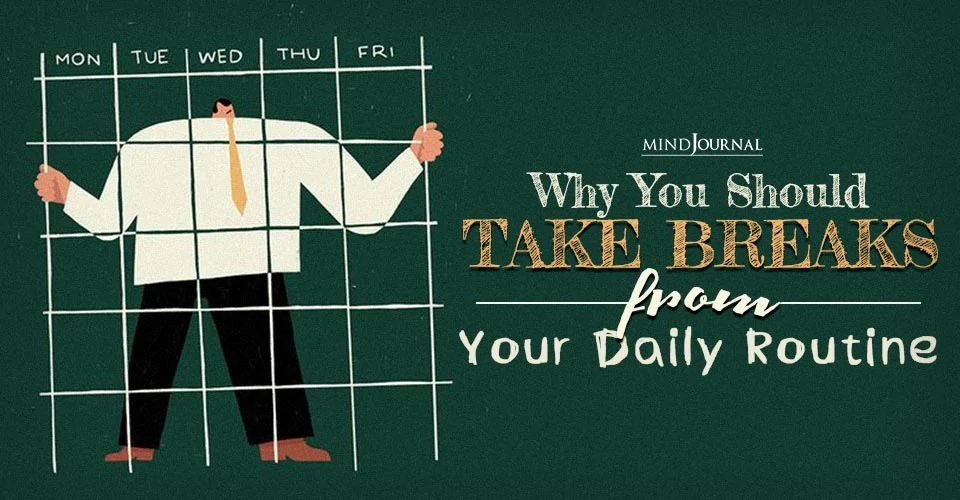The ability to stick to a daily routine is a sign of efficiency. However, a daily routine can dull things down. This is the reason why you should take breaks and boost your productivity as well as your creativity.
KEY POINTS
At certain times each day, ease up, unwind, recharge, put your feet up, and take a load off.
When we get some rest, we have more energy, mental clarity, resilience for hard things, patience, and caring for others.
Acknowledge to yourself any unreasonable beliefs or fears about resting.
Busy, busy?
The Practice:
One should take breaks from their daily routine.
Why You Should Take Breaks?
This practice is definitely a case of teaching what you need to learn: I’ve been working through a big bucket of tasks lately with little chance to rest. (I console myself with knowing that the bucket is emptying a lot faster than it’s filling with new tasks.)

Sometimes you can really feel what you need to do by feeling what’s happening for you when you don’t. “Don’t,” that is: ease up, unwind, recharge, put your feet up, take a load off, just chill. Because when you don’t rest, you wear out, wear down, and start running on empty. Then you’re not much good for yourself or anyone else.
But when you get some rest and get more rested, you have more energy, mental clarity, resilience for the hard things, patience, and wholehearted caring for others.
I promised my wife this would be my all-time fastest JOT to write. Because I really need some rest!
And you do, too.
Related: How To Prevent Burnout: 13 Signs You’re On The Edge
How?
Tell the truth to yourself about how much time you actually — other than sleep — truly come to rest: not accomplishing anything, not planning anything, not going anywhere. The time when you don’t do anything at all, with a sense of relaxation and ease. No stress, no pressure, nothing weighing on you in the back of your mind. No sense of things left undone. Utterly at rest.
Probably not much time at all, if you’re like me.
Also acknowledge to yourself any unreasonable beliefs or fears about resting — for example, that if you rest you’ll lose your edge, things will fall apart, you’ll let people down, or others will judge you.
Now imagine a kind, wise, fearless friend looking over your shoulder and knowing both how little time you rest and your “reasons” for not resting more. What will your friend tell you? Similarly, listen to your innermost self about you and resting: What is that still quiet voice saying to you? Imagine the benefits for you and others if you listen to the support and wisdom of your dear friend and innermost being.

Related: 14 Proven Ways To Stop Working Around The Clock
Then commit to what makes sense to you, in terms of nudging your schedule in a more restful direction, refusing to add new tasks to your own bucket, taking more breaks, or simply helping your own mind be less busy with chatter, complaints about yourself and others, or inner struggles. For example:
- Upon first waking, bring to mind your fundamental purpose in life, whatever it is, and rest in the felt knowing of it, in giving yourself over to it, like resting in the warm cradling current of a great river.
- At meals, pause for half a minute with your food before you start eating.
- Be aware of that little space between the end of an inhalation and the beginning of an exhalation (or vice versa). From time to time each day, notice that space and rest into it.
- When you complete a task, take a break for a few seconds or more before shifting gears to the next one.
- Promise yourself that you’ll take a minute or more each day to sit quietly and remain present with yourself while doing nothing. (This is an essential type of meditation.)
- Have real times each day when you truly “clock out” and are no longer on task or accountable to anyone.
- Encourage your mind to come to rest at least occasionally. Tell yourself you can worry/problem-solve/grumble later. The mind/brain is like a muscle — for example, using it consumes extra glucose much like lifting weights does — and it needs to stop working sometimes to replenish and rebuild itself.
Related: How Giving Yourself A Break Can Unblock Your Creativity
And when you rest, sink into its pleasures and rewards… and sense them sinking into you, like a warm rain falling on thirsty ground.
So did you understand the importance of why you should take a break from your daily routine and how it can help you?
If you found this article to be helpful, share it with your friends and family.
Written by: Rick Hanson Ph.D.
Originally appeared on: Psychology Today
Republished with permission









Leave a Reply
You must be logged in to post a comment.